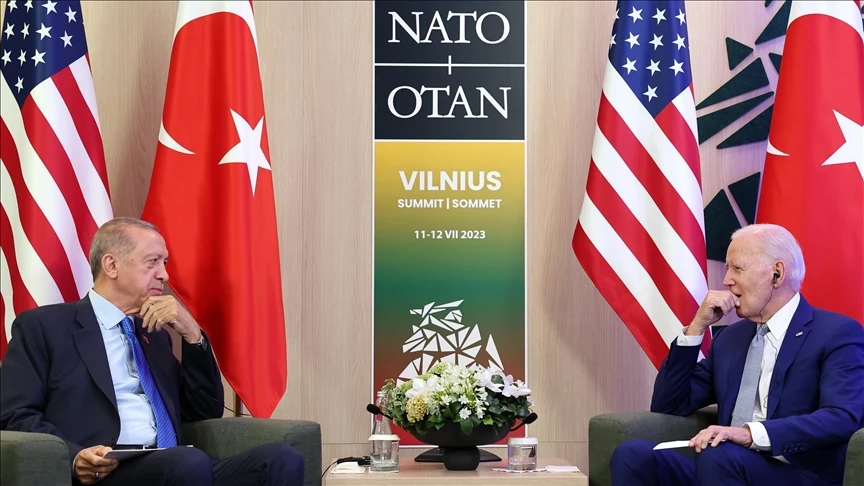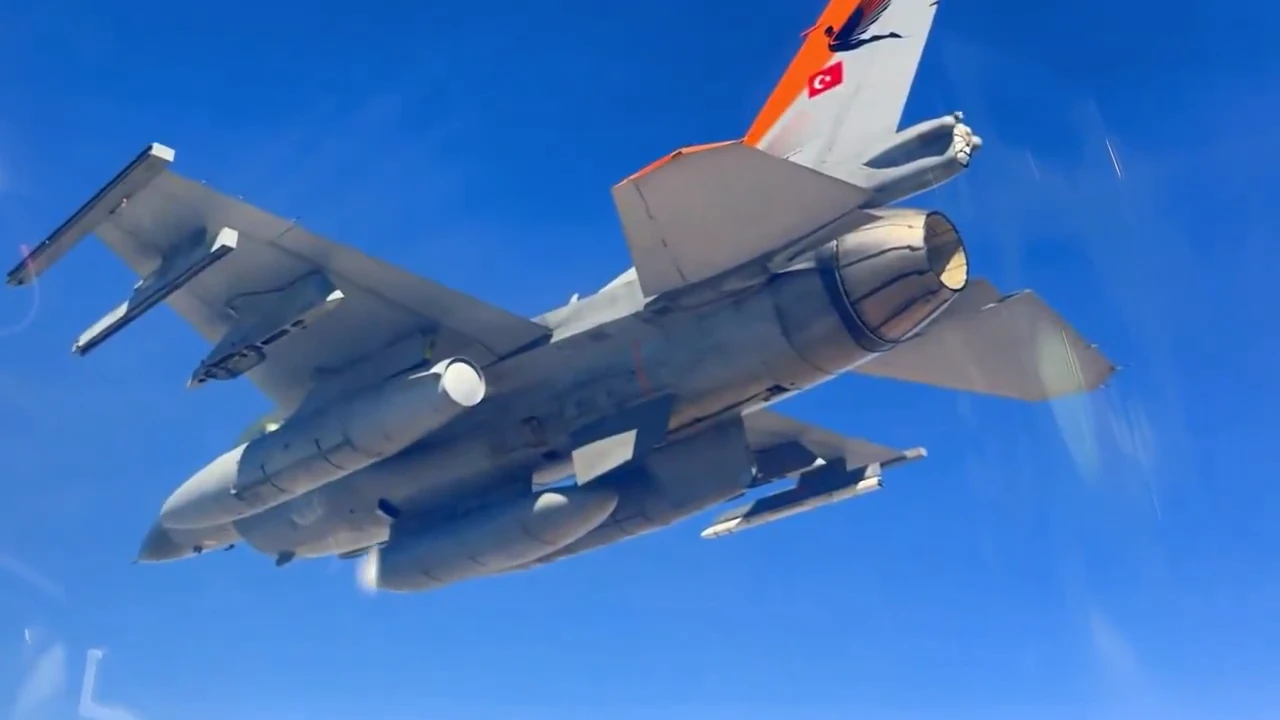US-Türkiye relations enter new era of pragmatism and transactionalism
 President Erdogan and U.S. President Biden meeting at NATO 2023 Vilnius summit in Vilnius, Lithuania, July 11, 2023. (AA Photo)
President Erdogan and U.S. President Biden meeting at NATO 2023 Vilnius summit in Vilnius, Lithuania, July 11, 2023. (AA Photo)
In the U.S., the debate about “who lost Türkiye” has given way to a new stage of realism and acceptance, according to an analysis of the War on Rocks, a platform for foreign affairs analysis. American authorities are now focusing on certain matters of shared interest rather than expecting automatic cooperation from Ankara.
Recent events, such as U.S. President Joe Biden’s low-profile statement on the so-called Armenian genocide and Türkiye’s muted trade cutoff with Israel, exemplify this new dynamic, according to analysis. This approach allows both nations to focus on a purely transactional relationship, managing divergent interests and building on shared ones where possible.
Key tensions, such as the U.S. strategy in Syria and Türkiye’s purchase of the Russian-made S-400 missile system, have strained ties, leading to sanctions and Türkiye’s removal from the F-35 program. The war in Ukraine has further highlighted Türkiye’s independent stance, as it has maintained neutrality, traded with both sides, and promoted itself as a mediator, despite U.S. efforts to pressure Ankara to align more closely with Western interests, the analysis states.
Current geopolitical dynamics, including the recent Gaza conflict, led by Israel, and Türkiye’s complex relations with regional powers like Iran, continue to test the U.S.-Türkiye relationship.
Challenges such as tensions with Greece, NATO veto power, and the presence of U.S. forces alongside the PKK/YPG terrorist organization in Syria could further strain ties. However, Washington has adapted to these changes, prioritizing a pragmatic and transactional approach that accepts Türkiye’s independent foreign policy.
Furthermore, this allows both countries to manage their differences while cooperating on shared interests, acknowledging that the historic alliance dynamics have fundamentally shifted.



